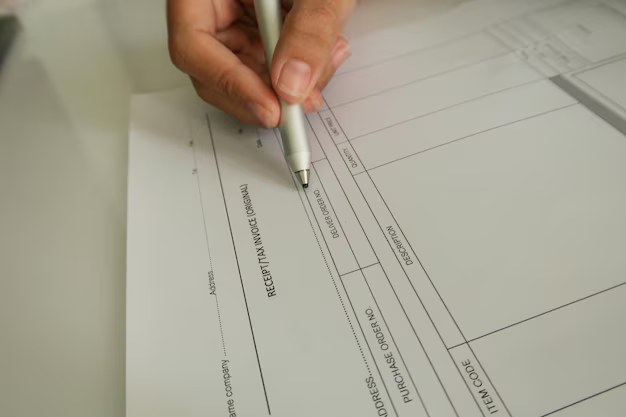Understanding Sales Tax in Virginia: Everything You Need to Know
Navigating the world of sales tax can be daunting, especially when it varies not just by state, but sometimes by county or city within the state. In Virginia, this complexity is less intimidating with a thorough understanding of what the sales tax is, how it applies to you, and its nuances. Whether you’re a resident, a business owner, or a visitor, learning about Virginia’s sales tax system can empower you to make informed decisions.
What is Sales Tax and Why Do We Pay It?
Sales tax is a consumption tax imposed on the sale of goods and services. It is collected by retailers from consumers at the point of purchase and then remitted to the government. The revenue generated from sales taxes is vital for state and local governments as it funds public services, infrastructure, education, and emergency services.
Sales Tax Rate in Virginia
Statewide Base Rate
As of 2023, the base sales tax rate in Virginia is 4.3%. This is the universal rate applied to most goods and services across the state. When making a purchase, this base rate represents the primary component of the sales tax.
Additional Local Taxes
In addition to the base rate, Virginia localities can impose their own sales tax, usually at the rate of 1%. This means most areas in Virginia have a combined state and local sales tax rate of 5.3%.
Exception Zones and Rates
Virginia implements higher tax rates in specific areas such as Northern Virginia and the Hampton Roads region. These are called regional transportation improvement areas where an additional 0.7% regional rate is charged, bringing the total to 6.0% in these areas.
Example:
- Northern Virginia: 6% (including the additional 0.7% for transportation)
- Hampton Roads Region: 6%
Items and Services Subject to Sales Tax
Taxable Goods and Services
- Clothing and Footwear: These are subject to the standard sales tax rate.
- Electronics: Computers, televisions, and similar devices are taxed at the applicable rate.
- Appliances and Furniture: Both new and used items are taxable.
- Entertainment Services: Tickets to movies, concerts, and sporting events include sales tax.
Exemptions and Non-Taxable Items
Certain goods and services are exempt from Virginia sales tax. Understanding these exemptions can save consumers money:
- Groceries: Taxed at a reduced rate of 2.5%.
- Prescriptions and Medical Devices: Fully exempt.
- School Supplies: Eligible for tax-free status during annual tax holidays.
Sales Tax Holidays
Virginia offers specific periods where certain items can be purchased without paying sales tax. These typically include:
- Back-to-School Tax Holiday: Items like school supplies, clothing, and footwear under a specific price are exempt.
- Energy-Efficient Products Tax Holiday: Encouraging the purchase of energy-saving appliances and products.
🛍️ Quick Tip: Mark your calendar for these tax holidays to maximize savings on necessary purchases.
How Sales Tax Affects Consumers and Businesses
For Consumers
Understanding sales tax can lead to more strategic buying decisions. Being aware of the tax rates and exemptions can empower you to:
- Plan major purchases around tax holidays.
- Budget effectively by knowing the full cost of items including tax.
For Businesses
Businesses in Virginia must comply with tax collection and remittance procedures efficiently:
- Registering for Sales Tax: Any business selling taxable goods or services must register with the Virginia Department of Taxation.
- Collecting and Remitting Tax: Businesses collect sales tax from customers and remit it to the state.
- Keeping Records: Maintain accurate records for a minimum of three years to comply with state audits.
💼 Business Tip: Automate sales tax collection and reporting to streamline compliance and avoid penalties.
Recent Changes and Future Trends in Virginia Sales Tax
Understanding recent trends can prepare both consumers and businesses for future changes:
- Improving Infrastructure: The extra funds from regional sales tax aid in enhancing Virginia's transportation network, which can affect future tax rates.
- Digital Goods and Services: As e-commerce grows, expect discussions around the taxation of digital products.
- Environmental and Sustainable Initiatives: Potential new tax policies aimed at supporting green initiatives and renewable energy.
Practical Tips for Managing Sales Tax
- Always Check Your Receipts: Ensure you are charged the correct rate, particularly in different regions.
- Stay Informed on Changes: Laws can change, affecting how much tax is paid or the items it applies to.
- Use Online Resources: Many websites offer calculators and tools for precise tax planning.
- Consult with a Tax Professional: For complicated situations or high-value transactions, professional help can ensure compliance.
📅 Note: Use tax calendars to track due dates for filing and payments to avoid penalties.
Visual Summary of Sales Tax in Virginia
| How Virginia Sales Tax Works | |
|---|---|
| Base State Rate | 4.3% |
| Local Rate | +1% |
| Total Standard Rate | 5.3% |
| Exception Areas | Northern VA & Hampton Roads (6.0%) |
🔍 Key Takeaways:
- Base rate is 4.3%, typically 5.3% total with local taxes.
- Some regions like Northern Virginia have higher rates.
- Look for exemptions and tax holidays to reduce your taxable expenses.
Understanding the sales tax landscape in Virginia can simplify your financial dealings, help you avoid unexpected costs, and support smart consumer behavior. Whether you’re buying new appliances, preparing for back-to-school shopping, or managing a business, staying informed about sales tax can lead to more efficient spending and a smoother financial journey.

Related Topics
- Can I Deduct Vehicle Sales Tax On My Federal Return
- Do Gross Sales Include Sales Tax
- Do I Need To Collect Sales Tax For Selling Online
- Do You Pay Sales Tax At The Dealership Or Dmv
- Do You Pay Sales Tax On a House
- Do You Pay Sales Tax When You Buy a House
- Does Alaska Have a Sales Tax
- Does Arizona Have Sales Tax
- Does Canada Have Sales Tax
- Does Florida Have Sales Tax
